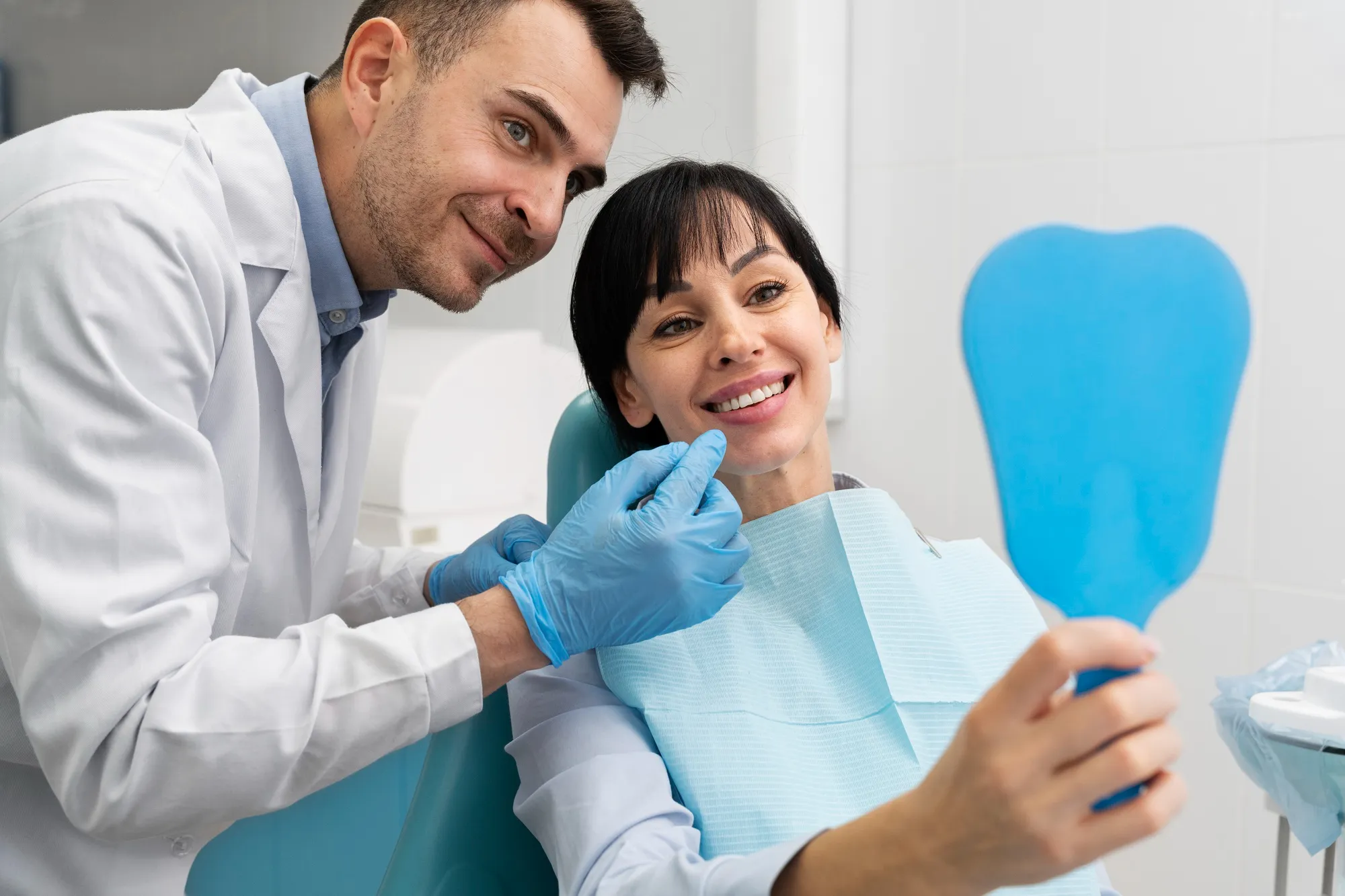Eating after you get dental implants in Colwood has a big impact on how well you heal. The food you eat may also help to improve your restored smile.
Your mouth will need time to heal, and the right food can make this process quicker and easier to carry out.
After dental implant surgery, you can start eating and enjoying food again. Let’s take a look at the dos and don’ts for mealtimes in recovery.
Understanding the Healing Process
After implant surgery, your gums and jawbone will need time to adjust to the implant. This process is osseointegration and will set the implant into your jawbone so it becomes part of you like a true root.
For the duration of the healing phase, it is ideal to consume soft foods that are easy to chew and won’t dislodge the implant.
Soft Foods to Eat After Surgery
Your first meals should not be too strenuous on your teeth and gums for a few days. Here are some safe and nourishing options:
- Smoothies and protein shakes
- Mashed potatoes or soft vegetables
- Scrambled eggs or oatmeal
- Warm soup or broth (not steaming)
- Applesauce, yogurt, or pudding
Once you feel more healed, you can start to introduce solid food into your diet, just make sure to take small bites away from your implant.
Foods to Avoid After Dental Implant Surgery
To protect your implants, it’s best to avoid:
- Crunchy or hard foods like nuts, chips, and carrots.
- Sticky foods like caramel or chewing gum.
- Hot or spicy foods may irritate your gums.
- Alcohol and smoking (they can slow down healing).
Your dentist in Colwood will most likely offer tailored guidelines for your recovery depending on your recovery. Always follow them.
Long-Term Eating Tips for Implant Success
Once your implant is healed, you will be able to eat most foods again, even crunchy ones. However, they will last forever if you maintain a few healthy habits.
- Brush and floss daily to prevent infection
- Steer clear of biting into hard things (ice, hard candies, etc)
- Make appointments with your dentist near you for checkups and cleanings regularly
- Eat a balanced diet that supports bone and gum health
The success of your dental implants in Langford and the surrounding regions can be impacted by your eating habits and care routine.
When to Contact Your Dentist
Some discomfort is expected after surgery, but if you have severe pain, swelling that won’t go away, and bleeding that gets worse, reach out to your dental implants near you provider. Treating injuries quickly can help to avoid infection and promote healing.
Your Next Step to a Stronger Smile
The success of your implant surgery doesn’t end in the doctor’s office. Its success continues at home with your self-care. If you are preparing for your implant treatment or need guidance after your surgery, Urban Smiles Colwood can help you.
Our team will be with you every step of the way for a smile makeover to make it as comfortable as possible.
Schedule your implant consultation today for a confident, painless, and lasting smile.
Visit us today! Get directions to Urban Smiles Colwood.
FAQs
When can I start eating normally after dental implant surgery?
In most instances, patients can resume eating soft solid foods after about a week, but complete healing may take several months. Always follow your dentist’s guidance about your specific case.
Can I drink coffee or hot beverages after my implant surgery?
For the first 24–48 hours, it is better to avoid hot drinks since heat will impede the healing process and increase bleeding. After your mouth feels comfortable again, you may enjoy your coffee, but not too hot!
What foods help with faster healing after implants?
Soft, nutrient-rich foods are also great choices, such as smoothies, yogurt, mashed veggies, eggs, and soups. They are tender on your mouth and make your body heal much faster.

